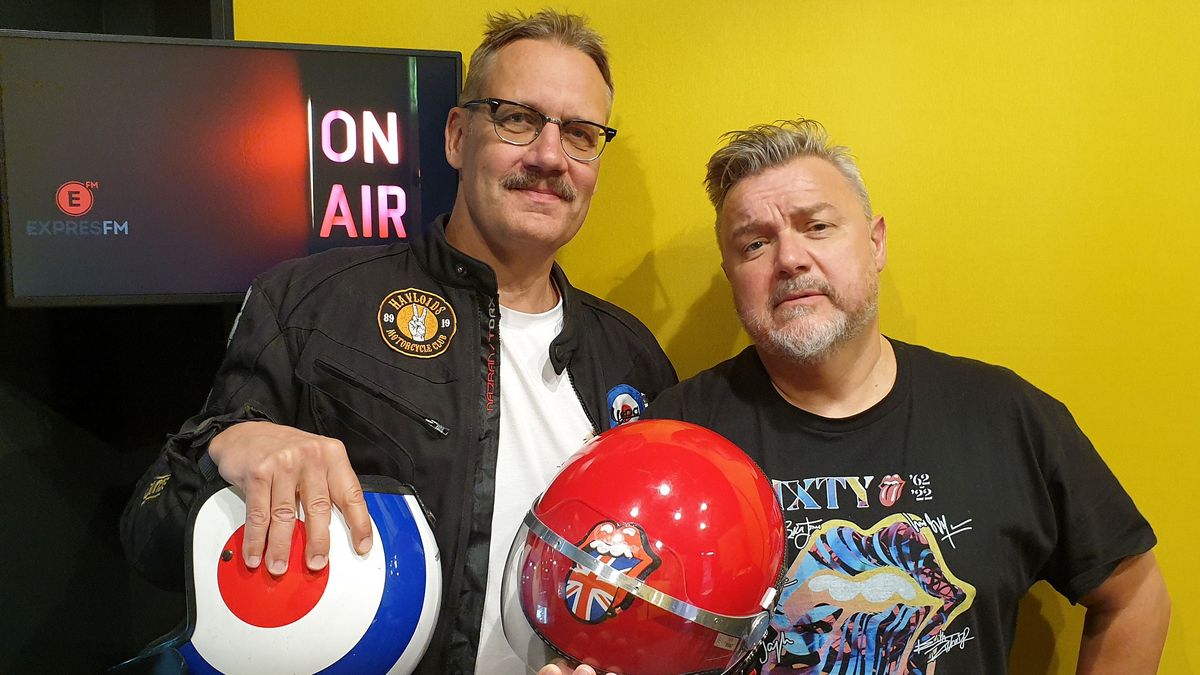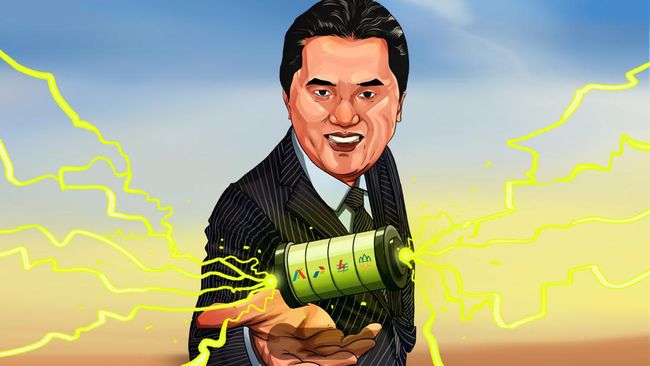David, we have a common passion – the Vespa motorcycle. When did you start riding a Vespa, which became part of your lifestyle?
–
I thought I would buy some means of transport that would make it easier for me to commute between the radio, the theater and home. At first I didn’t care what I bought, but my ex-wife told me I had to buy a Vespa. The first was a fifty, a two-stroke, you don’t see it much anymore. Around the museum, I could irritate her even in her seventies.
–
And then it happened all at once, first some people approached me saying that they were interested in me coming among them. I thought they were Jehovah’s Witnesses, and besides, I don’t like associations since the days of the Bolsheviks. I finally went there and found out that they are very nice people. Then we went on some trips, to Karlštejn, to Ostrava, and I was already hooked. I am actually one of the founding members of the Czech Vespa Club.
–
You drive one route regularly, which one?
–
From Prague to Trieste. We drive a slightly different route every time, the important one is Judenburg, which is a city in Austria where we sleep overnight. Unfortunately, I’m not going this year because of work.
–
What did it give you besides being mobile around town?
–
Especially friends. You have to get out of your social bubble and start interacting with people who are doing something completely different. Which is important, because otherwise we move in such cyclical circles and one would not get out of that theater. This way we can see each other and come up with other ideas. It is great.
–
Do you still have time to “tune” your machine?
–
Almost not. I mostly try to keep things in the condition I bought them in. Maybe we “tune” the performance a little. I now have a Malossi variator, which is ideal for the city, the maximum speed does not increase, there is higher consumption, but it drives great.
–
What does your family say about it?
–
They don’t talk to me at all. The children are excited when I take them somewhere, they take it as entertainment and tolerate it.
–
David Matásek
After graduating from the Prague Conservatory in 1984, he worked as a freelance actor. He played in various ensembles – in Studio Bouře, in the National Theatre, until now he cooperates with the Theater in Řeznicka, in the years 1991-95 he was a member of the Drama Theater of the National Theatre. He left the National Theater in 1995 and worked at the Comedy Theater for seven years, and since 2002 he has been a member of the National Theater Drama.
–
He became famous on the film screen and television mainly for the role of Kendy in Dušan Klein’s six-part series about poets from 1982 to 2016. He also impressed the audience in the TV series Redakce, Lejteší, Přešlapy and Polda.
–
Source: National Theater and ČSFD
——
And how do you feel about trends or technologies that young people follow?
–
I have the advantage of having children, and I’m not a boomer for them yet, so they don’t have fun with me. They are cynical but kind. And I also have a young wife. But I’ve been inept with technology since birth, when I learn how to use an app I feel like the king of the world. And in half a year there is something new again. I don’t really follow trends, but I try to be up-to-date and know the terminology. And if I don’t know something, I’m happy to have it explained to me.
–
More than technology, I am surprised by how human thinking has shifted. Some things I stop understanding mentally. There are certain barriers, things that are not only not joked about, but also not seriously discussed. If anything, then only mostly seriously and only certain people are allowed to talk about them and only in a certain way. That makes me a little sad.
–
Can you be a little more specific?
–
For example, Mark Eben’s opening speech, when he presented a renovated copy of the film Joke and mentioned that modern-day swazacs will rise. Of course, a lot of people spoke up, but it didn’t occur to me that he said anything unacceptable. And if Mark Eben is being accused of sexism, that’s absurd, and maybe I just don’t have the discernment to hear it there.
–
When you discuss something like that over a beer, are you the type to get into that debate?
–
What matters is if I care about those people. There are people I don’t want to bother with and I’ll take the conversation elsewhere. Moreover, with my past, sooner or later someone will tell me to keep my mouth shut, that I don’t particularly have anything to do with it. Which is a beautiful argument and definitive. And I get up and go away.
–
Then there are people I care about, even though they have a different opinion. I try to find arguments and explain to them how I see it. It is not important at all if they accept my opinion or not, but that we can at least talk about it. It seems to me that the splitting of social bubbles of society is the worst that I can remember so far.
–
What you might also be interested in
Read also other interviews of Miloš Pokorný with interesting guests.
——
When you have time and go out for a beer, what is the most common topic?
–
Fortunately, it’s not health. We talk a lot about children, about women of course. Maybe even about work, I’m interested in what people do. I am a bit of a voyeur because my profession is to make someone who has a different profession. Of course, politics is at the end, I don’t look for this topic much.
–
How do your children feel about the fact that their dad is a famous actor?
–
The youngest thinks I’m a cop. He yells at the officers: “My dad is your colleague.” The older kids don’t care. I talk acting kids out of it because you’re not entirely your own boss. If they are lucky and study something they enjoy, that’s the main thing.
–
Since you are engaged, sometimes you have to play what you would not have chosen. Do you ever fight with it?
–
That I would think about going to the directorate and saying that I don’t want to play in it, I experienced that twice in the whole time. Sometimes they complied, sometimes they didn’t and frowned at me. I actually look forward to seeing what they come up with every time. I’m looking forward to work, but when it’s before the premiere and we’re closed in the theater for a long time and we have those extended ten-hour rehearsals, I wonder if I need it. But I have a short memory in this regard and I am an optimist.
–
If we sum it up, do you like your job?
–
Clearly. I can’t do anything else, and although I could pretend to be doing something else for the few years until retirement, because that’s what I do best, but they would probably see through it soon.
–
Poets are constantly repeating and everyone knows them. Then there are things you work on, put effort into, and then it so-called fizzles out. One must be able to deal with that, right?
–
Again, it’s good to enjoy the momentary energy that you get from those people – the audience laughs, they are shocked, they cry or we make them think about something, which we also like to do. Enjoy the moment, the moment. I really don’t live for some marble slabs on which I would have written that I did something there and then. On the night when it works and you hit people, it’s great and priceless.
–
When it comes to modern technology and trends, is there anything you envy the younger generations?
–
I don’t envy them the social multiplicity of choice, information, decision-making. We had an easier time in that direction, we knew who our enemy was and what we didn’t want. On the other hand, I envy them the naturalness with which they accept technological news.
–
If you had the option, would you spend part of your life abroad?
–
I wanted to emigrate at the age of 24, in the early eighties, I wanted out of this country. But then I already felt that it was nonsense, moreover, some of my friends ran away in October 1989. I suspected that it could not last long. And as the wins and losses came, I enjoyed it. However, I forgot to speak English enough to make a living there. And you know how it is with Czech actors abroad – you play Russians or silent roles. Voskovec, who spoke beautifully, also played a foreigner.
–
Could you live anywhere else?
–
I think yes. I even know where, I really like Slovenia or the north of Italy. I like it there and it feels close to me because I like mountains, good food and wine – and it’s all there. I also like Scandinavia, we traveled with my family in a rented car. It’s close to me too, although the food isn’t as brilliant. I don’t like the heat.
–
I know you’ve been through several marriages, do you consider yourself the family type?
–
Clearly. Of course, it doesn’t look like it on paper, but I’m a family guy. That’s why I go to it again and again every time. The ceremony is fine, you get to know people, it’s usually a great party as long as there’s no arguing or arguing. So far I had a clique and they were nice parties. I couldn’t be alone, I probably wouldn’t enjoy it. I’m definitely a family type, I’m happy when we go somewhere.
–
Does he enjoy talking about his work? How did he return to the work process after the pandemic break, how did he fight his fear and what helped him? And does he prefer scripts in classic or electronic form? How does he like to spend his free time and what does he like? Listen to the current Boomer Talk podcast at the beginning of the article.
–
The Boomer Talk podcast
Moderator Miloš Pokorný introduces himself in a new podcast called Boomer Talk, which on Podcasty.cz published twice a month.
–
The term boomer serves as an insulting satire of bitter, old Internet users who feel the need to criticize younger users for their age and interests.
–
The principle of the Boomer Talk podcast is about comparing new and old things, and Miloš Pokorný interviews interesting guests from various professions on this topic.
——-


